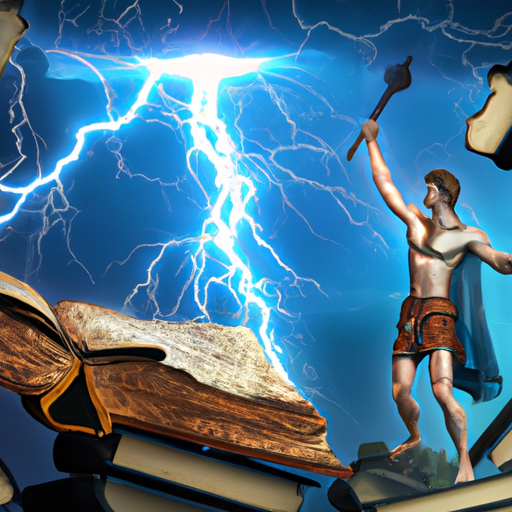The Influence Of Mythology On Modern Literature: An In-depth Analysis
Introduction
The influence of mythology on modern literature cannot be underestimated. Countless authors have reached into the treasure trove of ancient narratives, weaving elements of myth into their stories to add richness, complexity, and profound meaning. This insightful article aims to explore this influence, highlighting specific examples and discussing the cultural significance of this trend.
The Power of Myth
Since ancient times, myths have served as a means for humans to process the complexities of existence, providing a framework to navigate existential questions and dilemmas. Through symbols and symbolic storytelling, myths offer timeless wisdom, thoughts and perspectives that continue to resonate with contemporary audiences. This deep universality makes them a compelling source of inspiration for modern writers.
Mythology in Modern Literature
A plethora of today's literary works are imbued with traces of myth. In fantasy literature, for instance, J.K. Rowling's globally acclaimed 'Harry Potter' series has conspicuous references to ancient myths. Characters such as Centaurs and Phoenix, ubiquitous symbols of Greek mythology, influence the narrative and add layers of meaning that magnify the grandeur of the tale.
Another remarkable example is the oeuvre of Rick Riordan, including 'Percy Jackson & the Olympians' series. Riordan liberally draws upon Greek, Roman, and Norse Mythology, reimagining ancient narratives in a modern context, which appeals widely to a contemporary, young adult readership.
The Cultural Significance of Myths
Myths help to define the identity of a culture, expressing its understanding of the world and the human condition. They hold up mirrors to the societies that produced them, revealing their fears, aspirations, and ideologies. When mythological themes are incorporated into contemporary literature, they speak to the enduring truths of human experience, facilitating a connection across time and cultures.
Myth Interpretations
Notably, the interpretation and retelling of these ancient narratives differ on the basis of time, place, and society. Such reinterpretations often reflect temporal shifts in societal understanding and viewpoint; they serve as a catalyst for discourse on topics like gender dynamics, colonialism, imperialism, sovereignty, and many others.
The Appeal of the Mythical and Supernatural
Modern authors might be drawn towards ancient narratives due to the inherent allure of the mythical and the supernatural. These narratives transport us beyond the mundane realities, inviting us to immerse ourselves in a realm where extraordinary events and characters reign.
The supernatural elements in myths evoke an enduring curiosity and fascination. They pose questions about the unfathomable mysteries of life, death, and beyond, sustaining our contemplation of the universe's inscrutable designs.
Conclusion
Elements of ancient mythology continue to shape modern literature, granting it a depth and complexity that fascinates readers worldwide. As we keep exploring these timeless themes, we are offered a chance to reconsider, rediscover, and reestablish our understanding of the human experience.

















Comments
Leave a Comment